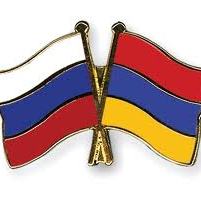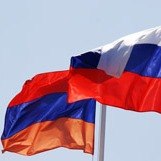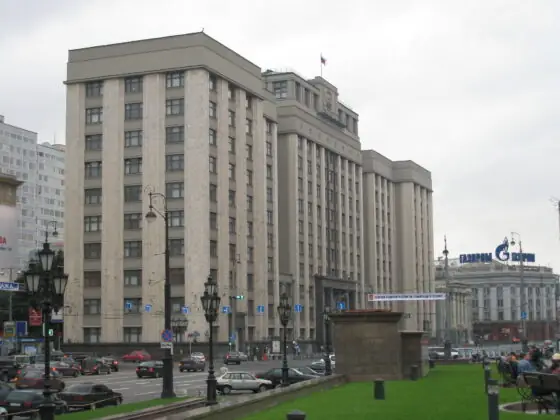PONARS Eurasia Policy Conference
September 23-24, 2013
Elliott School of International Affairs
The George Washington University
1957 E Street, NW, Washington, DC
RSVP
Agenda – Day 1, Monday, September 23, 2013
8:45 am
Registration, 1957 E St. NW, 7th Floor
9:15 am
Opening Remarks
9:30-11:15 am
Panel 1: MAKING SENSE OF PUTIN 2.0
Panelists: Kimberly Marten, Nikolay Petrov, James Richter, Brian Taylor
Chair: Henry E. Hale
City View Room
11:15-11:30 am
Coffee Break
11:30-1:00 pm
Panel 2: RUSSIAN PROTESTS: MOTIVATIONS AND MECHANISMS
Panelists: Mikhail Alexseev, Theodore Gerber, Mark Kramer
Chair: Oxana Shevel
City View Room
1:00-1:45 pm
Lunch Break
1:45-3:30 pm
Panel 3A: RUSSIAN OFFICIALDOM FROM BELOW
Panelists: Elise Giuliano, Serghei Golunov, Paul Goode
Chair: Nikolay Petrov
City View Room
Panel 3B: CAN RUSSIA BE THE WEST'S PARTNER?
Panelists: George Gavrilis, Yulia Nikitina, Polina Sinovets, Mikhail Troitskiy
Chair: Cory Welt
Lindner Commons
3:30-3:45 pm
Coffee Break
3:45-5:30 pm
Panel 4A: SOCHI 2014: THE POLITICS OF RUSSIA’S WINTER OLYMPICS
Panelists: Andrey Makarychev, Sergey Markedonov, Robert W. Orttung, Sufian Zhemukhov
Chair: Pavel K. Baev
City View Room
Panel 4B: BETWEEN EUROPE AND RUSSIA: WINDS OF CHANGE?
Panelists: Volodymyr Dubovyk, Kornely Kakachia, Sergey Minasyan, Arkady Moshes, Oleksandr Sushko
Chair: Juliet Johnson
Lindner Commons
– See Additional Day 1 Details at Bottom of Page –
Agenda – Day 2, Tuesday, September 24, 2013
9:00 am
Registration, 1957 E St. NW, 6th Floor, Lindner Commons
9:30-11:00 am
RUSSIA: ENERGY SUPERPOWER NO MORE?
Pavel K. Baev, Peace Research Institute Oslo (PRIO)
How Russia’s Energy “Weapon” Turned into an Oil Pillow and Gas Rattle
Andrew Barnes, Kent State University
How Much Would It Hurt? Exploring Russia’s Vulnerability to a Drop in Energy Prices
Adam Stulberg, Sam Nunn School of International Affairs, Georgia Institute of Technology
Russia and the Geopolitics of Natural Gas: Leveraging or Succumbing to Revolution?
Chair: Samuel Charap, International Institute for Strategic Studies
11:00-11:15 am
Coffee Break
11:15-1:15 pm
CENTRAL ASIA AFTER 2014: A NEW AGENDA
Dmitry Gorenburg, CNA
Central Asian Military and Security Forces: Assessing the Impact of Foreign Assistance
Marlene Laruelle, The George Washington University
Revisiting Islamism: A Factor for Democratization in Central Asia?
Eric McGlinchey, George Mason University
States of Protest in Central Asia
Sebastien Peyrouse, The George Washington University
Food Security in Central Asia: A Public Policy Challenge
Scott Radnitz, University of Washington
Spinning the Spillover: Why NATO Withdrawal from Afghanistan Does Not Pose a Threat to Central Asia
Chair: Shairbek Juraev, OSCE Academy in Bishkek
– Additional Day 1 Panel Details – Monday, September 23, 2013 –
Panel 1
MAKING SENSE OF PUTIN 2.0
Kimberly Marten, Barnard College, Columbia University
A New Explanation for Russian Foreign Policy: The Power of Informal Patronage Networks
Nikolay Petrov, Higher School of Economics
From a Normal Country to Normal Authoritarianism: The Transformation of the Political Regime in Russia
James Richter, Bates College
Civil Society and the Second “Putinshchina”
Brian Taylor, Syracuse University
Putin’s Crackdown: Sources, Instruments, and Challenges
Panel 2
RUSSIAN PROTESTS: MOTIVATIONS AND MECHANISMS
Mikhail Alexseev, San Diego State University
Beyond the Polls: Google Queries and Public Protest Volatility in Russia
Theodore Gerber, University of Wisconsin-Madison
New Media, Political Information, and Opposition Views in Russia: A Cautionary Note Based
on Survey Evidence
Mark Kramer, Harvard University
Political Protest and Regime-Opposition Dynamics in Russia
Panel 3A
RUSSIAN OFFICIALDOM: FROM BELOW
Elise Giuliano, Harriman Institute, Columbia University
Assigning Blame After Natural Disasters in Russia
Serghei Golunov, University of Tartu, Estonia
Quasi-Feudalism in Higher Education? Rectors and Politics in Russia
J. Paul Goode, University of Oklahoma
The Unintended Consequences of Russia’s Gubernatorial Elections
Panel 3B
CAN RUSSIA BE A SECURITY PARTNER?
Arkady Moshes, Finnish Institute of International Affairs
Europe’s Disillusionment with Russia
Yulia Nikitina, Moscow State Institute of International Relations (MGIMO)
How the CSTO Can (and Cannot) Help NATO
Polina Sinovets, Odessa I.I. Mechnikov National University
Three Russian Myths About Iran
Mikhail Troitskiy, MGIMO/MacArthur Foundation
The China Factor in U.S.-Russia Relations
Panel 4A
SOCHI 2014: THE POLITICS OF RUSSIA’S WINTER OLYMPICS
Andrey Makarychev, University of Tartu, Estonia
The Politics of Sports Mega-Events in Russia: Kazan, Sochi, and Beyond
Sergei Markedonov, CSIS
Security and Geopolitics at the Sochi Olympics
Robert W. Orttung, The George Washington University
Sochi 2014: The Political Economy of Russia’s Mega-Projects
Sufian Zhemukhov, The George Washington University
Managing the Threat of an Olympics Boycott: International Pressure and Russia’s Response
Panel 4B
BETWEEN EUROPE AND RUSSIA: WINDS OF CHANGE?
Volodymyr Dubovyk, Odessa National University
Obstacles in the Way of Facilitating Viable Black Sea Regional Security Cooperation
Kornely Kakachia, Georgian Institute of Politics/Tbilisi State University
NATO-Georgia Relations: Will 2014 Bring Anything New?
Sergey Minasyan, Caucasus Institute (Yerevan)
Armenia and Georgia: A New Pivotal Relationship in the South Caucasus?
Oleksandr Sushko, Institute for Euro-Atlantic Cooperation (Kyiv)
A Fork in the Road? Ukraine Between EU Association and the Eurasian Customs Union










